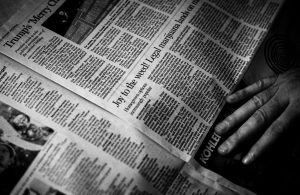Even though Kenneth N. Waltz’s article “Why Iran Should Get the Bomb” is pretty short, it perfectly portrays his stance in International Relations Theory, neorealism – defensive realist, and highlights the core concepts of this school of theory for students. He takes a strong position on Iran gaining nuclear weapons for it concurs with the neorealist idea of stability under anarchy, which is captured through the general theory “by reducing imbalances in military power, new nuclear states generally produce more regional and international stability, not less.” The discussion of military power and international stability goes beyond the scope of the state and offers a point of departure for neorealism from realism.
 Waltz’s key argument that “a nuclear-armed Iran would be the… best possible result: the one most likely to restore stability to the Middle East” directs our attention to the core concepts of anarchy and balance of power that all realists subscribe to. With this, he implicates that Iran getting the bomb would decrease the chances of a full-scale nuclear war in the Middle East because Israel will not have monopoly on nuclear power in the region anymore, thus both armed-states will deter each other. To support his argument, he assumes that nuclear weapons are acquired for defensive purposes, and not for offensive purposes. “If Tehran determines that its security depends on possessing nuclear weapons…” points to one of the core principles of neorealism – power as a means, because states seek power for the benefit of security. Contrasting this with the realism view of power as an end strengthens our understanding of one of the major differences between the two traditions.
Waltz’s key argument that “a nuclear-armed Iran would be the… best possible result: the one most likely to restore stability to the Middle East” directs our attention to the core concepts of anarchy and balance of power that all realists subscribe to. With this, he implicates that Iran getting the bomb would decrease the chances of a full-scale nuclear war in the Middle East because Israel will not have monopoly on nuclear power in the region anymore, thus both armed-states will deter each other. To support his argument, he assumes that nuclear weapons are acquired for defensive purposes, and not for offensive purposes. “If Tehran determines that its security depends on possessing nuclear weapons…” points to one of the core principles of neorealism – power as a means, because states seek power for the benefit of security. Contrasting this with the realism view of power as an end strengthens our understanding of one of the major differences between the two traditions.
Waltz discusses another core idea of realist thinking – states are rational actors and thus will act accordingly. In getting his point across unfounded fears of Iran gaining nuclear weapons, he emphasizes the perception of vulnerability and awareness through historical observation “that when countries acquire the bomb, they feel increasingly vulnerable and become acutely aware that their nuclear weapons make them a potential target in the eyes of major powers.” Simply putting it, it will not be wise or rational for Iran to act aggressively after it gains power because it will be perceived as a force to be reckoned with by other states, and they will be watching Iran’s every move critically. If Iran acts aggressively, there will be heavy repercussions for them.
Not only does he fight for Iran’s nuclear possession, but he also provides a solution for the security dilemma in international relations. He states that “Diplomacy between Iran and the major powers should continue, because open lines of communication will make the Western countries feel better able to live with a nuclear Iran.” An underlying idea of socialization seeps through his point of open communication. By encouraging communication between states, it reduces the security dilemma, thus reduces the occurrence of war. Portraying the situation in a win-win situation for all, he reassures readers that stability emerges alongside nuclear capabilities from past observations in history.
![]() Past observations are another important part of the neorealism perspective because it suggests that similar outcomes of events are replicated even when different actors and the nature of actors in international politics changes. The language he uses is also of importance for it reminds us of neorealism’s close connection with game theory. In discussing the nuclear power of states, Waltz ideas are extremely similar to the game of chicken in game strategy. Using practical examples from current events, he is able to draw connections to the self-help security under anarchy in international politics. Game theory also implies that these events are always reoccurring. Thus, both the discussion of history and the language that Waltz invokes connect with the theme of world politics as “eternal recurrence”.
Past observations are another important part of the neorealism perspective because it suggests that similar outcomes of events are replicated even when different actors and the nature of actors in international politics changes. The language he uses is also of importance for it reminds us of neorealism’s close connection with game theory. In discussing the nuclear power of states, Waltz ideas are extremely similar to the game of chicken in game strategy. Using practical examples from current events, he is able to draw connections to the self-help security under anarchy in international politics. Game theory also implies that these events are always reoccurring. Thus, both the discussion of history and the language that Waltz invokes connect with the theme of world politics as “eternal recurrence”.

